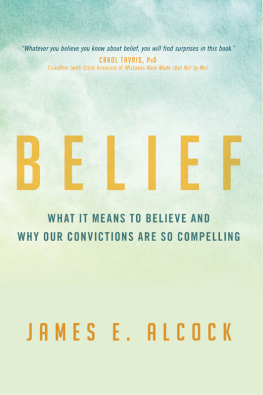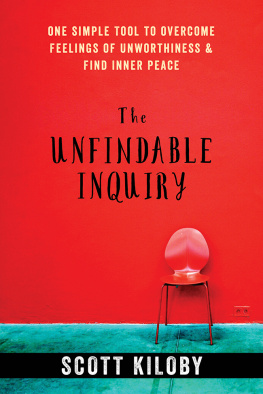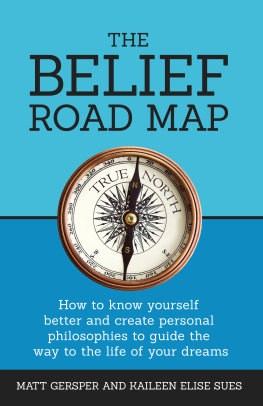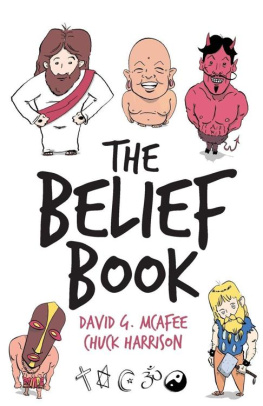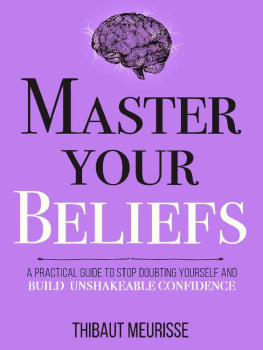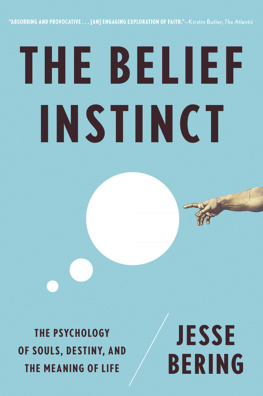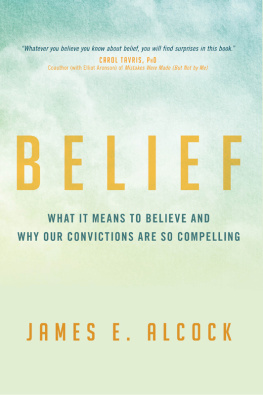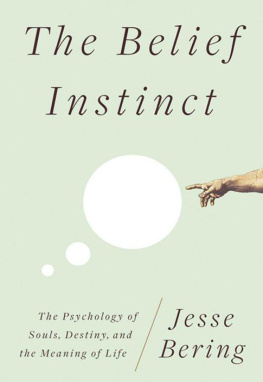
I extend my grateful appreciation to all those who have provided feedback and guidance with regard to various portions of the book, including Ray Hyman, Timothy Moore, Guy Proulx, and Tomasz Witkowski. My deepest gratitude goes to the three people who carefully read through the entire manuscript and provided detailed and incisive feedback that helped me improve the book in a number of important ways. They are, in no particular order:
Psychologist Loren Pankratz, whose extensive comments and thoughtful insights, and in particular those that reflect his impressive breadth of psychological knowledge and experience, have been invaluable;
Author Gary Bauslaugh, whose acumen as a writer and keen insight into the human condition have helped shape my presentation of important concepts, and have been of particular value in making this psychological material more accessible to a lay audience;
My wife, Karen Hanley, who not only provided astute guidance and constant encouragement during the long preparation of this book, but also applied her keen editorial professionalism to careful review of the manuscript throughout the editing process.
Thanks also to Emily Duncan Nadeau for her assistance in the initial literature search and to Laura Galin-Corini for her help with the formatting of the extensive set of endnotes.
I also wish to thank my literary agent, Nancy Rosenfeld, and Prometheus Books editor in chief Steven Mitchell, both of whom were key to the successful publication of this book. In addition, I thank all those at Prometheus Books who were involved in making this book a reality, including Sheila Stewart, Hanna Etu, Liz Mills, Laura Shelley, Catherine Roberts-Abel, Bruce Carle, and Cheryl Quimba.
ALSO BY JAMES E. ALCOCK
Science and Supernature
Parapsychology: Science or Magic
A Textbook of Social Psychology (coauthored)
Social Psychology: Global Perspectives (coauthored)

Those who can make you believe absurdities can make you commit atrocities.
Voltaire
War. Terrorism. Mass suicide. Martyrdom. Human sacrifice to appease the gods. As we know all too well, Homo sapiens is no stranger to violence. There are many motivations, including jealousy, revenge, superstition, greed, lust, honor, and self-aggrandizement, but underlying most violence is belief: belief that someone has insulted you or your group, has stolen your lover, or occupies territory that rightfully belongs to you. Belief that the gods will punish you if you do not offer a human sacrifice. Belief that your martyrdom will be rewarded in a glorious afterlife. Belief that sacrificing your own life will help or protect your family and community. Belief that taking your own life is the only escape from present or future agony.
On average, more than a million people around the world take their own lives each year, one person every forty seconds.
Suicide is at times the product of psychosis that renders the individual unable to distinguish between reality and horrible fantasy, but it is most often hopelessness, depression, and the slings and arrows of outrageous fortune that lead people to knock on death's door. A man diagnosed with an incurable and debilitating degenerative disease jumps from a bridge to avoid a future filled with misery and drear. A grief-stricken parent, overwrought by news that her children were killed in a car accident, takes a lethal dose of sleeping pills to end her suffering. And upon hearing jackboots in the corridor, a captured spy bites his cyanide capsule in the belief that he is about to be tortured to death. Just as Shakespeare's Romeo tragically took his own life in the mistaken belief that Juliet was dead, these decisions, too, would be in grievous error if the beliefs underlying them were falseif the degenerative disease were a misdiagnosis, the report of the children's death were erroneous, and the boots were those of a liberating army.
To be, or not to be, that is the question
Whether tis Nobler in the mind to suffer
The Slings and Arrows of outrageous Fortune,
Or to take Arms against a Sea of troubles,
And by opposing, end them?
To die, to sleep
No more; and by a sleep, to say we end
The Heart-ache, and the thousand Natural shocks
That Flesh is heir to? Tis a consummation
Devoutly to be wished.
Hamlet, Act III, Scene I
To be or not to be: Belief is fundamental to the decision to end one's life. Believing that life is not and never will be worth living and that there is no other means to escape pain, sorrow, humiliation, or future suffering can bring one directly to Hamlet's contemplation. It was the belief that they faced execution or banishment to the Gulag that motivated hundreds of former Soviet citizens, sent back to the Soviet Union after their liberation from the Nazis in 1945, to take their own lives, and in some cases, those of their children as well.
To sleep, perhaps to dream: Of course, suicidal contemplation will be influenced by belief about what happens when one dies. It is one thing if death is simply the end, a fade to black. It is quite another if you believe that you have a soul that will survive death, and that you will be judged and punished for having taken your own life. Depending on your religion, the consequences might be an eternity of hellfire and brimstone or reincarnation as a lower life form. Judaism, Christianity, Islam, and Hinduism all traditionally condemn suicide, although Hinduism makes an exception for fasting to death. Buddhism and Jainism are somewhat more tolerant in this regard, but they too discourage such acts.
To die, to sleep.
To sleep, perchance to dreamay, there's the rub,
For in that sleep of death what dreams may come
When we have shuffled off this mortal coil,
Must give us pause. There's the respect
That makes calamity of so long life.
'Hamlet, Act III, Scene I
Suicide was not condemned in the early days of Christianity, and in some circumstances, it was even considered a virtuous actfor example, if carried out in order to avoid being raped.
Mass suicides threatened the sustainability and growth of Christianity, and this contributed to a gradual change in attitude toward self-destruction. It is not easy to build a religious movement when new recruits are killing themselves. In the fourth century, St. Augustine publicly condemned suicide and martyrdom as sins and crimes, and thus began the Christian church's equation of suicide with sin to be punished in the afterlife. Later, in the thirteenth century, Thomas Aquinas preached that suicide was such a terrible sin that it could never be forgiven because it was directed against God himself. Because of the church's hardening attitude, burial in hallowed ground was forbidden for anyone who had died by suicide. The bodies of suicide victims were often desecrated, and their families were forced to live in shame.
Church law fed into criminal law, and the stigma associated with suicide became so great in many parts of Europe during the Middle Ages that the possessions of suicide victims, along with those of their family members, were confiscated by the state. Attempted suicide became a crime that ultimatelyand ironicallywas punished by being put to death. Attempted suicide continued to be a crime in England and Wales until 1961 and in Canada until 1974, but even today, it continues to be a criminal offense in many countries. There is currently no law against attempting suicide in the United States.
Next page
